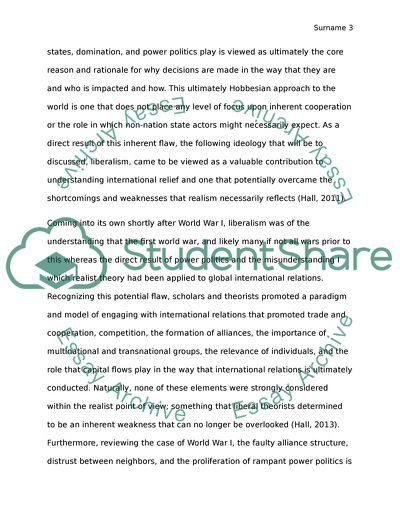Cite this document
(Realism and Liberalism: A Prospectus of Two International Relations Term Paper, n.d.)
Realism and Liberalism: A Prospectus of Two International Relations Term Paper. https://studentshare.org/politics/1845400-compare-and-contrast-the-main-tenets-of-liberalism-and-realism-which-provides-the-more-convincing-depiction-of-international-relations
Realism and Liberalism: A Prospectus of Two International Relations Term Paper. https://studentshare.org/politics/1845400-compare-and-contrast-the-main-tenets-of-liberalism-and-realism-which-provides-the-more-convincing-depiction-of-international-relations
(Realism and Liberalism: A Prospectus of Two International Relations Term Paper)
Realism and Liberalism: A Prospectus of Two International Relations Term Paper. https://studentshare.org/politics/1845400-compare-and-contrast-the-main-tenets-of-liberalism-and-realism-which-provides-the-more-convincing-depiction-of-international-relations.
Realism and Liberalism: A Prospectus of Two International Relations Term Paper. https://studentshare.org/politics/1845400-compare-and-contrast-the-main-tenets-of-liberalism-and-realism-which-provides-the-more-convincing-depiction-of-international-relations.
“Realism and Liberalism: A Prospectus of Two International Relations Term Paper”. https://studentshare.org/politics/1845400-compare-and-contrast-the-main-tenets-of-liberalism-and-realism-which-provides-the-more-convincing-depiction-of-international-relations.


